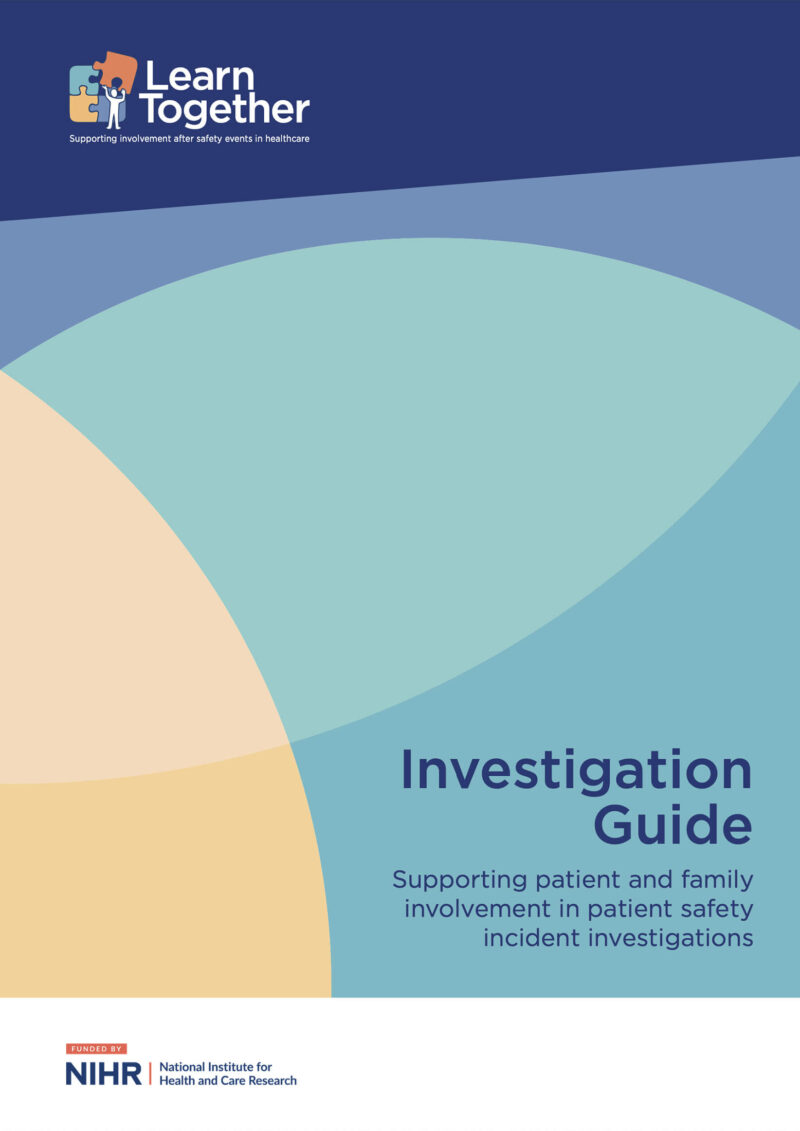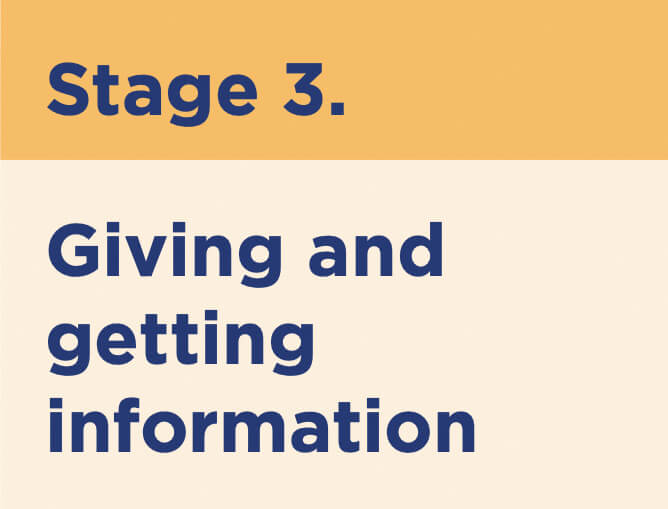Information and support for Engagement Leads
The resources on this website have been designed, together with people who have lived and professional experience of investigations, to meet the requirements of the Patient Safety Incident Response Framework (PSIRF).
The Investigation Guide provides you with information to help you support patients and families to be involved during an investigation. It is important that you also familiarise yourself with the Patient and Family Guide, which works together with this. Please note that some of the material may not directly map on to current policy.
The resources are free to use within your own organisation. However, before using them or making any adaptations, please review our Terms and Conditions.
















